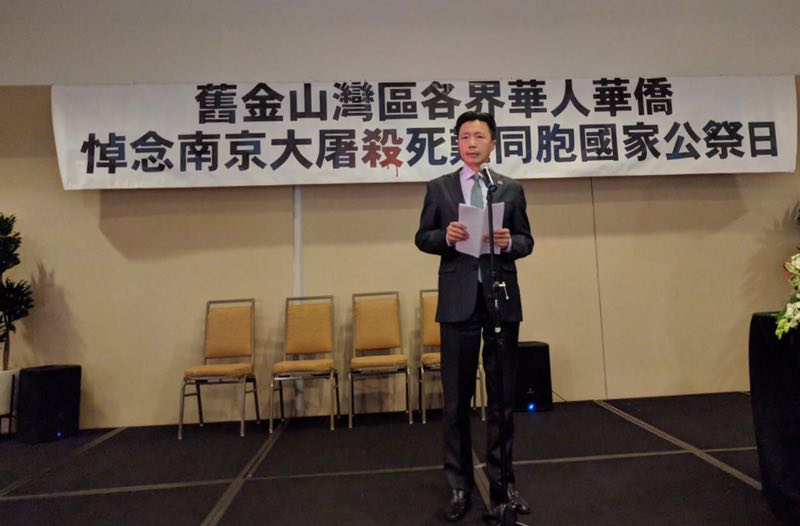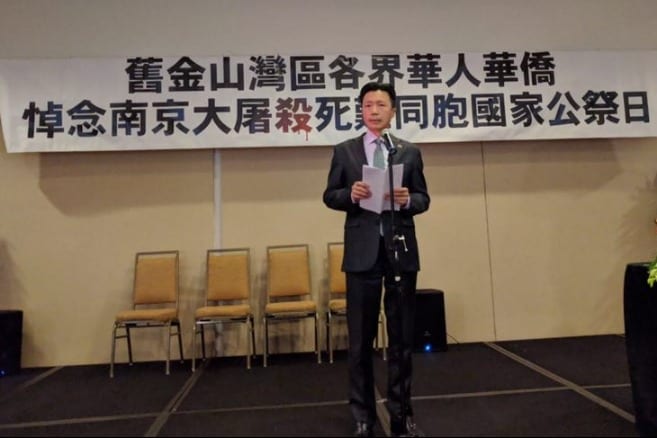
A memorial service to mark the 80th anniversary of the Nanjing Massacre committed by the Japanese military during World War II brought together hundreds of activists and members of the Chinese and other Asian communities on Sunday in San Francisco.
The memorial, organized by the Rape of Nanking Redress Coalition, the Committee to Promote Reunification of China, the Alliance for Preserving the Truth of Sino-Japanese War and Comfort Women Justice Coalition, has been held annually for the past 20 years with the aim of exposing the Japanese Imperial Army”s war crimes and encouraging people to understand and never forget the dark chapter of history.
“The Japanese Army blatantly violated international conventions and committed the extremely cruel atrocity in Nanjing, where 300,000 Chinese civilians were murdered and one third of the buildings were destroyed,” said Zha Liyou, acting Chinese consul general in San Francisco, at the service.
Japanese troops captured Nanjing, which was China’s capital at the time, on Dec 13, 1937, commencing a slaughter that lasted more than 40 days. Tens of thousands of women were raped.
“Our stories are linked. The fate of over 400,000 women sexually enslaved by the Japanese Imperial Army during World War II is part and parcel of what happened during the Nanjing Massacre,” said Judith Mirkinson, president of the Comfort Women Justice Coalition.
She said the 20th century has been called the most violent century in the history of the world, and that one way to ensure peace in the 21st century is through truth and reconciliation.
“Reconciliation does not come without truth. So the Japanese government must acknowledge their crimes,” she said. “They must give justice to those few people who still survive from the Nanjing Massacre and to the memory of what happened there.”
From the time that Japan invaded northeast China in September 1931, followed by a full-scale invasion that started on July 7, 1937, around 35 million Chinese soldiers and civilians were killed or injured during the Japanese occupation, which continued until 1945.
To honor the victims and the survivors, and to pursue justice and an enduring peace, the Chinese community worldwide joined hands this year to commemorate this historic event which was designated by the Chinese government as National Memorial Day for Nanjing Massacre Victims.
“To remember the atrocities committed by the Japanese Army during World War II does not mean to pass on the enmity but rather to remind people not to forget the history and inspire them to love peace,” said Zha. “It might be a comfort to the victims and those who sacrificed their lives that the Nanjing Massacre has been etched into the memory of the Chinese people and the world civilization.”
The Nanjing Massacre was entered onto the UNESCO Memory of the World Register, a compendium aimed at preserving documented heritage of universal value, in 2015.























